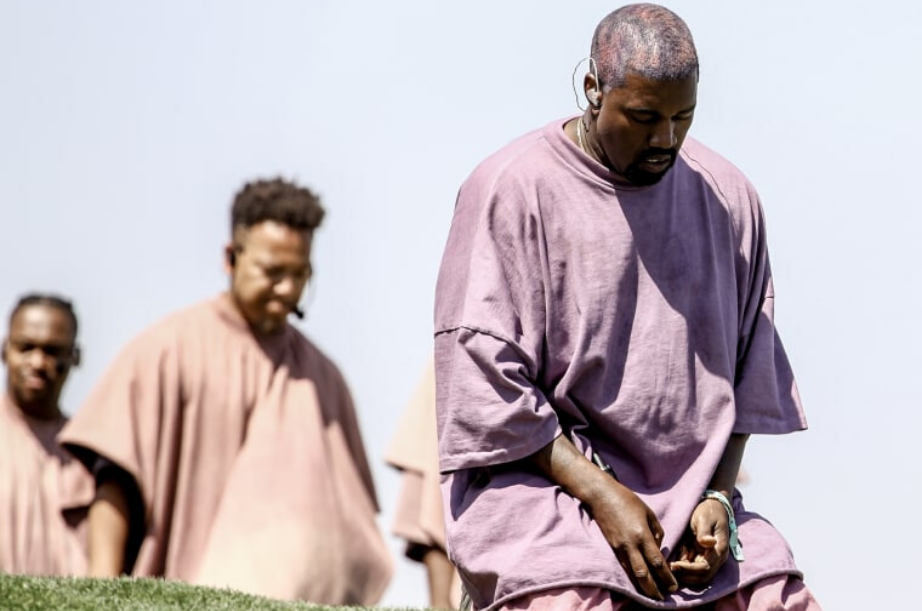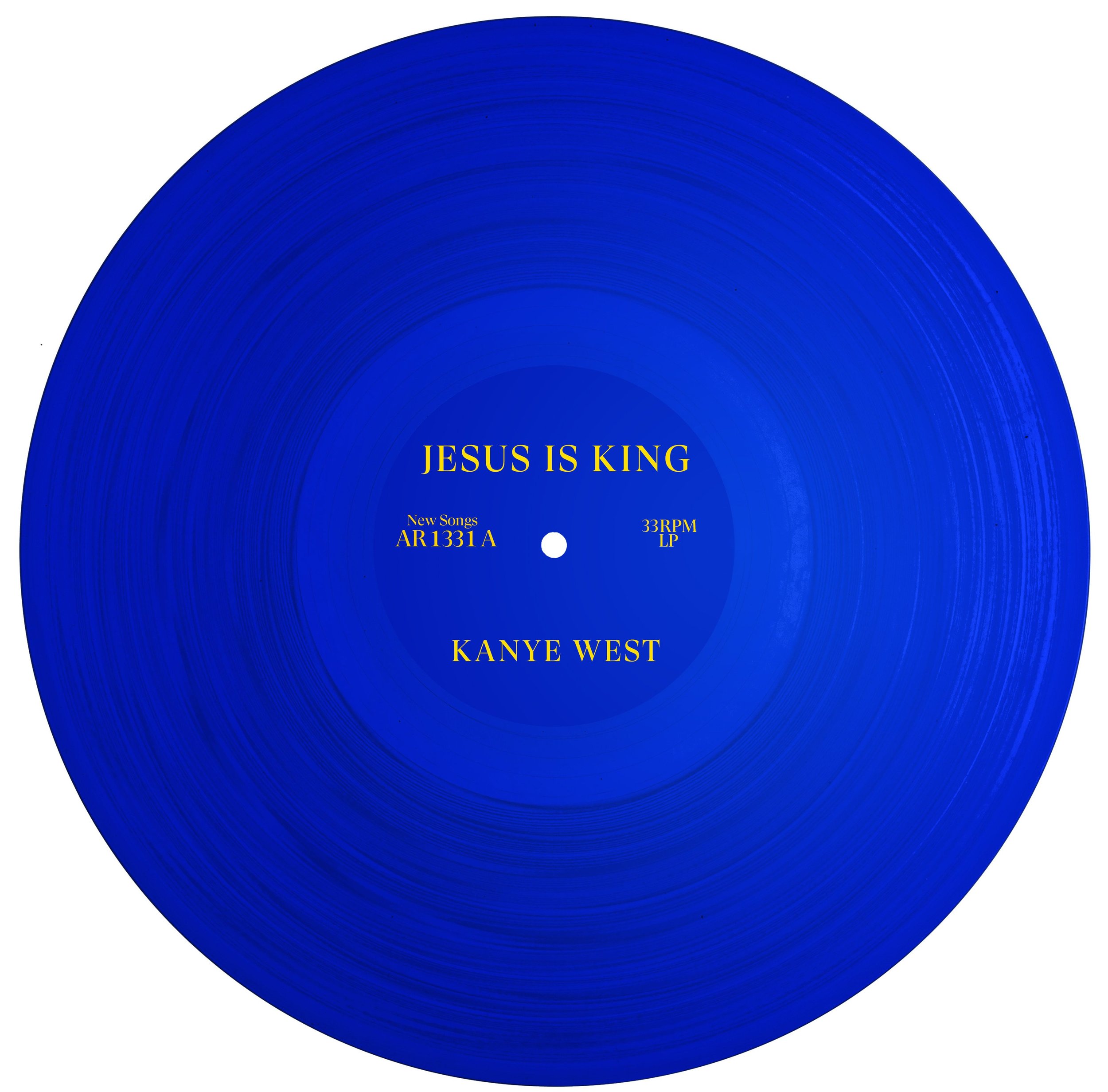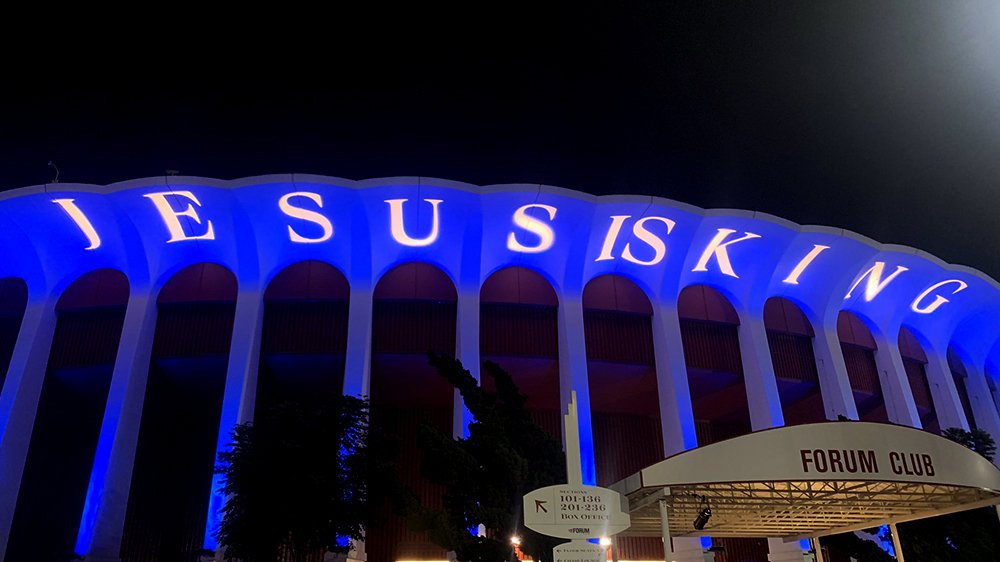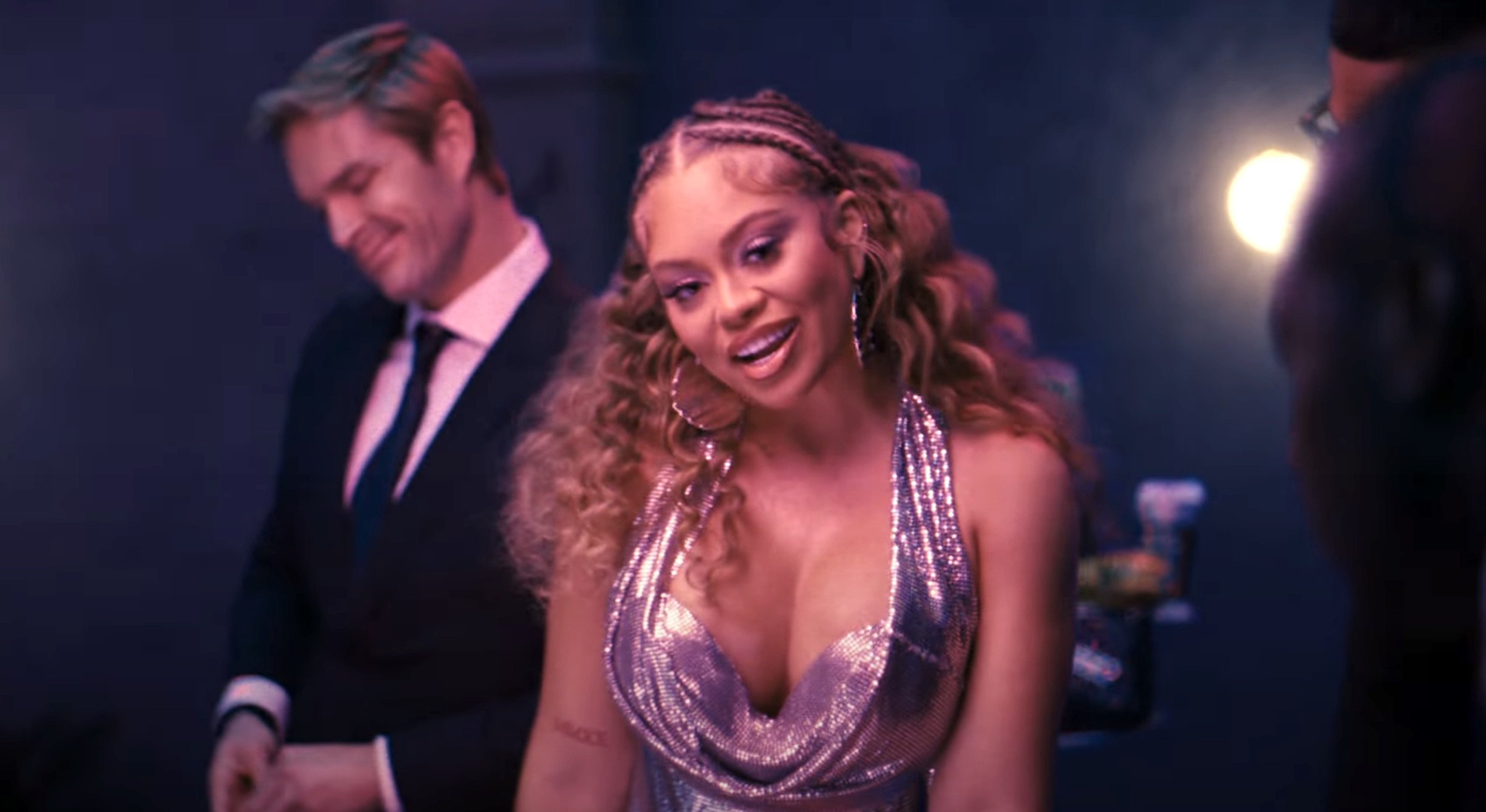Album Review: Kanye West, 'JESUS IS KING'
After many delayed release dates, leaked demos, and multiple titles, Kanye West's ninth studio album, JESUS IS KING has arrived. This album has been touted as a gospel album inspired by Kanye's recent journey into actively practicing Christianity and his highly publicized Sunday Services. Mainstream secular musicians have been crossing over into gospel and making gospel-influenced records for a while now. A couple of years ago Carrie Underwood released a gospel/country track titled "Something in the Water" and Blake Shelton put out an overtly Christian song by the name of "Savior's Shadow." Beyoncé and Kelly Rowland reunited with Michelle Williams on the gospel-pop song "Say Yes," and more recently, Beyoncé pulled from gospel on her new original song for The Lion King, "Spirit." Chance the Rapper garnered the biggest success and grandest acclaim of his career so far with the gospel-influenced Coloring Book, and Tori Kelly experienced a similar career shift with her gospel album, Hiding Place. Kanye himself has pulled from gospel music on multiple occasions, most notably on "Jesus Walks" and "Ultralight Beam," and DaBaby implemented some elements of gospel music on his KIRK standout, "Gospel." This is all to say that Kanye isn't exactly doing anything new or innovative with his blend of rap and gospel. Gospel/Christian artists like Kirk Franklin, Lecrae, and NF, have been doing it for years upon years. On JESUS IS KING, Kanye attempts to craft a gospel album, but he merely scratches the surface of the genre; Kanye's version of gospel is unsettlingly soulless and his lyricism on this record is elementary and vapid.
At just 27 minutes, JESUS IS KING feels more like a bloated EP than a fully realized album. The Sunday Service Choir commences the procession with a classic major chord-filled arrangement of standard gospel lyrics: "We need you"; "Sing till the power of the Lord comes down"; etc. Part of the issue with this track is that it feels robotic. Gospel, probably more than any other genre, relies on an innate feeling. It's a constant flow of emotion that reaches spontaneous peaks and valleys while still feeling completely natural. On the album opener, "Every Hour," the choir sounds mechanical in the way that they deliver their vocal performance. There's a lack of soul and conviction in their collective voice that makes the whole song feel odd. Part of this is likely due to the way the song is mixed. "Every Hour" is completely sanitized of any slight imperfections to the point where it feels inauthentic. Luckily, JESUS IS KING quickly recovers with the excellent "Selah." This track has some of the most challenging and interesting production of 2019. One hallmark of gospel music is the slow and steady use of crescendo to reach an explosive moment of catharsis. On "Selah," Kanye, Benny Blanco, & Co., are able to do this multiple times and shift through different genres in less that three minutes. It's quite an incredible feat how the song moves from gospel to rap while still retaining elements of soul and rock. The production is so captivating that even Kanye's corniest Bible-themed lyrics can't distract from its greatness. The following track, "Follow God," is basically the lovechild of The Life of Pablo's "Father Stretch My Hands" and "Feedback." The sound is classic Kanye (soul sample, yay!), but the reason this track is works is because, lyrically, Kanye finally combines a substantial personal narrative of his religious journey with gospel tropes. That makes it a winner.
The album continues its strong run with "Closed on Sunday." This song is difficult because unless you're willing to sit through one of the worst couplets in modern music history ("Closed on Sunday/You're my Chick-Fil-A"), you won't be able to experience the emotional heft of the latter half of the song. The song begins with a gentle guitar and then morphs into this futuristic electropop ballad with slight orchestral influences. The final "Jezebel don't even stand a chance" is delivered perfectly, the aching in Kanye's voice is real, but there's a subtle strength behind it. In one of the album's more cohesive moments, "Closed on Sunday" flows seamlessly into "On God." The latter is somewhere between 808s & Heartbreaks and YEEZUS; honestly, it feels like we've heard this song from Kanye before. On this track Kanye relays how God and faith helped him get through his most recent moments of controversy. Pi'erre Bourne's production is solid, but as a whole the song is forgettable. As is often the case, on the following track, "Everything We Need," Ty Dolla $ign steals the show. His smooth, layered vocals offer a much needed contrast to Kanye's shrill and brash voice. The two trade verses and choruses about the journey to grace and Kanye tries to deliver a clever twist on the story of Adam & Eve, but it just comes off as sloppy. That is one of the main issues on JESUS IS KING, the writing is far too clumsy for an artist who claims to be the "greatest of all time." Kanye has delivered some of the best-written rap tracks in recent memory (namely "Saint Pablo"), but there isn't a single moment of outstanding writing on JESUS IS KING (there are some solid moments, though).
ANDREW BARKER
On "Water," Kanye uses a poppier melody that provides a nice change of pace and the final verse where he pleads for God's grace is terrific melodic moment. One of the album's standouts, "God Is," which features some vocals from Labrinth, is another perfect moment of genre-blending. The calculated dynamics of the background vocalists and the tightness of Kanye's flow are offset by sweeping instrumentation that floats between classic gospel and hip-hop-driven bass. Unlike other songs on JESUS IS KING that eventually reach that emotional climax, "God Is" continues to build until the song ends, and it's a welcome change in song structure. "Hands On," the third-to-last track on the album, is arguably the best-written song on the record. Kanye fearlessly address the hypocrisy of many Christians and the many ways God has been in control of his life. The production is relatively sparse, but Kanye is actually rapping something of substance here. The penultimate track, "Use This Gospel," finally reunites Clipse and both No Malice and Pusha T deliver great verses. The sentiment of the song is admirable, but it's the saxophone solo at the end that really drives the song home. Finally, "Jesus Is Lord," a forty-six second long outro, closes the record.
JESUS IS KING is a great album (for the most part) in terms of production and arrangement. Some of the melodies are a bit clunky, but the music isn't necessarily bad. Now, what mars the record is the alarming decline in quality of Kanye's lyricism. Kanye's overtly religious bars have as much depth as a child who went to Vacation Bible School for one summer. This inability to reconcile his songwriting and his new Christian journey makes it hard for this to feel authentic. Furthermore, the mixing on JESUS IS KING, specifically the choir parts, leave the music devoid of any soul and raw emotion. It's almost like when white singers bring out choirs for performances of R&B-leaning tracks or ballads. You can't effectively perform a genre by forcing one or two elements of the genre to bend to your vision of how it should sound. You have to let the music guide you. You can't guide the music. Gospel, specifically, has such a rich history that plopping a choir onto a few tracks and calling it "gospel" feels disingenuous. That being said, it is clear from Kanye's delivery and vocal performance that this is real for him. You can hear the wonder, hurt, frustration, and awe in his voice as he sings and raps about his new journey. Who am I to judge how someone wants to express their journey with Christ? With some fine tuning, particularly his songwriting, Kanye may be able to pull off a stronger gospel/hip-hop album with Jesus Is Born.
Key Tracks: "God Is"; "Selah"; "Closed on Sunday"; "Everything We Need"
Score: 53








Drake & SZA finally link up on the lead single for For All the Dogs.